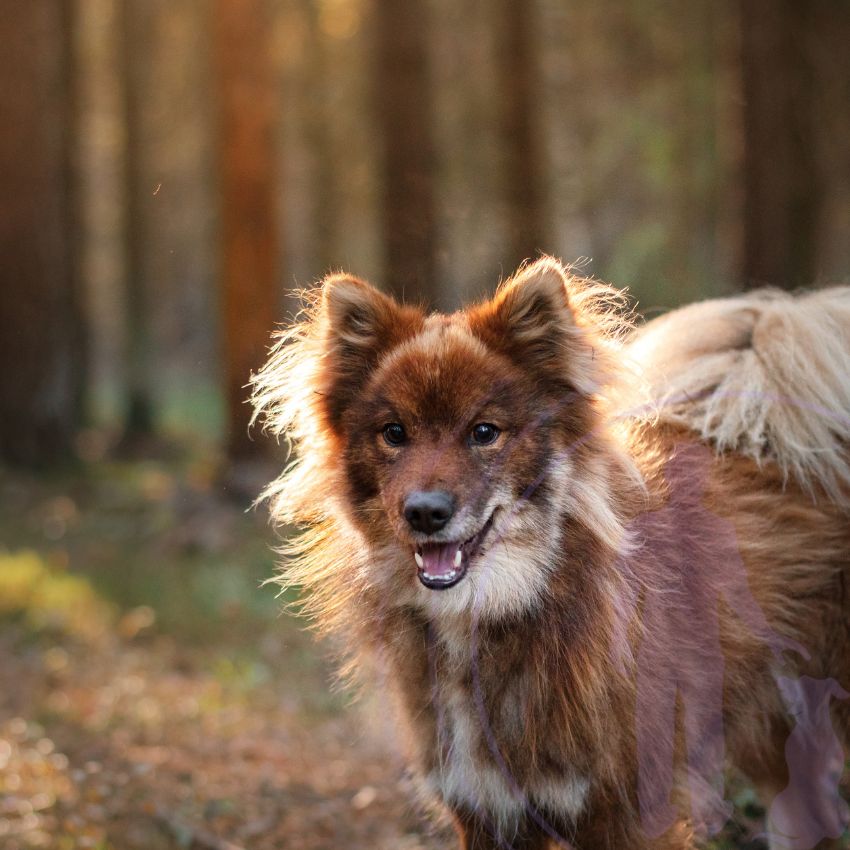Introduction to Puppy Development
Understanding puppy development is key to raising a well-adjusted adult dog. By being aware of the critical developmental periods and how they impact your puppy, you can provide the best care and guidance.
Overview of Critical Developmental Periods in Puppies
Puppies go through several important stages from birth to adulthood. These stages are:
- Neonatal Period (0-2 weeks)
- Transitional Period (2-3 weeks)
- Critical Socialization Period (3-12 weeks)
- Juvenile Period (3-6 months)
- Adolescence (6-18 months)
- Adult Development and Beyond
Each period has unique characteristics that influence your puppy’s growth and behavior. Recognizing these phases ensures you meet their physical and emotional needs.
Start strong – Puppy training made simple!
Give your puppy the best start in life! Our app offers tailored training for puppies of all breeds and temperaments, with step-by-step guidance, live sessions, and an AI assistant in 95 languages. Build trust, teach essential skills, and create a lifelong bond – all from the comfort of your home!

Importance of Understanding Developmental Stages for Proper Care
If you understand each developmental stage, you can anticipate and address your puppy’s needs effectively. Awareness of these stages enables you to:
- Provide age-appropriate nutrition and healthcare
- Introduce suitable training techniques
- Create a safe and stimulating environment for growth
For example, during the critical socialization period, exposing your puppy to various experiences can help prevent future fear and aggression. Proper care during each stage supports overall well-being and forms a strong foundation for your puppy’s future.
Role of Early Experiences in Shaping Adult Behavior
Early experiences play a pivotal role in shaping a puppy’s adult behavior. Positive and negative encounters during these formative months can have lasting effects. Puppies who receive:
- Regular interaction with humans and other animals: Develop social skills, resulting in a confident and friendly adult dog.
- Exposure to varied environments and stimuli: Become adaptable and less fearful in new situations.
- Basic training: Gain good behavior habits, making them easier to manage as adults.
Neglecting these early experiences can lead to behavioral problems such as anxiety, aggression, and difficulty adjusting to new environments. Therefore, intentionally providing positive and diverse experiences is crucial.
Early intervention in addressing fears and encouraging desirable behaviors during the critical socialization period, in particular, will significantly impact the overall temperament and adaptability of your dog as they grow older.
By considering each developmental phase’s characteristics and needs, you can ensure your puppy grows into a happy, healthy, and well-behaved adult dog, setting the stage for a lifelong positive relationship.

Neonatal Period (0-2 weeks)
Physical Development and Sensory Capabilities
During the neonatal period, which spans the first two weeks of a puppy’s life, these tiny creatures undergo significant changes. Newborn puppies are born blind, deaf, and unable to regulate their body temperature. Their eyes and ears are sealed shut, and their primary senses are touch and smell. These senses guide them to their mother’s warmth and milk, critical for their survival.
- Thermoregulation: Newborn puppies lack the ability to shiver, so they rely entirely on their mother for warmth. This period is vital as maintaining body temperature is crucial for survival.
- Movement: Puppies display limited motor skills during this period. Their movements are mostly reflexive, such as nursing and seeking warmth.
Maternal Care and Its Impact on Future Behavior
The mother plays an essential role during the neonatal period. She provides warmth, nutrition, and performs necessary tasks like grooming her puppies. This meticulous grooming includes stimulating the puppies to eliminate waste.
- Nursing: The mother’s milk is the sole source of nutrition during the neonatal period. It not only provides essential nutrients but also helps in building the puppies’ immune systems.
- Grooming: The act of the mother licking her puppies stimulates circulation and digestion, and contributes to bonding. This gentle interaction is one of the earliest forms of social contact a puppy experiences.
Experiencing consistent care from the mother during this period sets a foundation for the puppies to develop into well-adjusted adults. It impacts their ability to form bonds and adapt to new environments.
Early Neurological Development Milestones
Although much of a puppy’s neurological development occurs later, the neonatal period is notable for several critical milestones.
- Brain Growth: Although newborns have a limited capacity for learning, their brains are developing rapidly. Neural connections are being formed, which will support more complex behaviors in later stages.
- Reflexes: Newborn puppies show several instinctive reflexes like rooting and sucking which are crucial for feeding. The “righting reflex” is also present, enabling them to return to an upright position if turned over.
This stage sets the groundwork for future sensory and neurological development. Each day brings the puppy closer to more advanced awareness and interaction with their environment.
Understanding these early stages is essential for providing proper care and ensuring that puppies grow up to be healthy, well-adjusted dogs. As they transition into the next developmental phase, they will begin to open their eyes and ears, marking the start of their journey into a more interactive world.
Transitional Period (2-3 weeks)
During the Transitional Period, puppies undergo significant changes that shape their future development. This critical phase, which occurs from two to three weeks of age, is marked by the development of motor skills, enhanced sensory awareness, and the onset of social interactions with littermates.
Development of Motor Skills and Sensory Awareness
Around the two-week mark, puppies begin to gain better control over their bodies. They start to stand on their own, albeit a bit wobbly, and exhibit their first attempts at walking. These initial motor skills are vital as they lay the foundation for more complex movements in the future.
Enhanced sensory awareness is another hallmark of this period. Puppies’ eyes and ears start to open fully, allowing them to experience the world in new and exciting ways. The ability to see and hear fosters their curiosity and eagerness to explore their surroundings. For example:
- Vision: Puppies’ vision improves gradually, helping them navigate their environment and recognize their littermates and caregivers.
- Hearing: As their hearing develops, puppies become more responsive to sounds, such as their mother’s voice or the rustling of toys.
This newfound sensory awareness also includes the sense of taste and smell, which become more pronounced as they begin sampling soft foods and exploring with their noses.
First Social Interactions with Littermates
Around this time, social behaviors start to emerge. Puppies’ interactions with their littermates become more significant and complex. They start to engage in play-fighting, nudging, and gentle biting. These playful interactions are crucial for their social development, as they help puppies learn important skills such as:
- Bite inhibition: Through gentle biting and mouthing, puppies learn to control the strength of their bite, a vital aspect of canine social behavior.
- Communication: Playtime also teaches puppies how to communicate effectively through body language and vocalizations.
These first social experiences are pivotal in establishing proper social cues and behaviors that will be essential throughout their lives. Playful interactions help puppies learn boundaries and the importance of cooperation among peers.
Emergence of Basic Behavioral Patterns
As puppies become more mobile and start interacting with their surroundings, we begin to see the emergence of basic behavioral patterns. During this period, puppies demonstrate behaviors that will continue to evolve as they grow. Some of these basic patterns include:
- Elimination independence: Puppies start to eliminate without the need for maternal stimulation, marking an essential step towards independence.
- Chewing and teething: As their first teeth emerge, puppies exhibit increased chewing behaviors, which are crucial for dental health and jaw strength.
- Exploration and curiosity: With their sensory capabilities improving, puppies become more curious and start exploring their environment with enthusiasm.
Understanding these early behavioral patterns helps caregivers provide appropriate stimulation and ensure a safe, nurturing environment for their development.
As we move forward in our exploration of puppy development, we’ll delve into the Critical Socialization Period, a phase vital for shaping a well-adjusted, confident adult dog.

Critical Socialization Period (3-12 weeks)
Key window for exposure to various stimuli and experiences
The Critical Socialization Period, spanning from 3 to 12 weeks, is a crucial time in a puppy’s life. During this stage, their rapid development allows them to respond to the world around them with heightened curiosity and less fear. It’s a prime opportunity to introduce them to a range of stimuli and experiences to help shape their future behavior.
Introducing your puppy to a variety of sights, sounds, smells, and textures can help them become well-adjusted adults. Think about everyday items such as vacuum cleaners, televisions, different floor surfaces, and even car rides. Variation in these experiences helps build a resilient and confident dog. Remember to proceed slowly and ensure that each new encounter is positive.
Importance of positive interactions with humans and other animals
Positive interactions with humans and other animals during this period are vital. Puppies learn a great deal about social structures, human behavior, and other animals’ signals during this time. Friendly, cheerful, and gentle handling by various people can instill trust and reduce fear.
It’s also the time to introduce your puppy to other pets at home, such as cats or older dogs. Supervised play sessions with well-behaved animals can promote social skills. Ensuring that these interactions are positive and devoid of stress helps your puppy learn appropriate behaviors and prevents fear-based reactions in adulthood.
Structured socialization activities and their long-term benefits
Organizing structured socialization activities can have lasting benefits for puppies. Activities like puppy classes or safe, monitored playdates set the stage for life-long positive social behavior. These activities not only promote proper dog-to-dog interactions but also teach basic manners and encourage owner-puppy bonding.
- Puppy classes – These provide a controlled environment where puppies learn to interact with peers.
- Playdates – Arrange these with known, vaccinated, and calm dogs to ensure safety.
- Visits to various places – Visiting parks, pet-friendly stores, or even a busy street can help puppies get used to different environments.
- Gentle handling by different human hands – Encourage friends and family to handle your puppy so they become comfortable with various people.
Every positive experience during this formative period contributes to a well-rounded adult dog. Proper socialization reduces the risk of behavior issues like fearfulness, aggression, and anxiety. By the time your puppy reaches adolescence, they will be well-equipped with the skills needed to navigate the world confidently.
As your puppy progresses beyond the socialization period, their experiences will shape their behavior and interaction styles, emphasizing the importance of ongoing training and social integration.
This period lays the foundation for emotional and social stability throughout a dog’s life. Your efforts in thoughtfully exposing your puppy to various stimuli and ensuring positive interactions will pay off in a well-adjusted, happy adult dog.
Juvenile Period (3-6 months)
Development of Social Skills and Hierarchy Understanding
Welcome to the Juvenile Period! This is an exciting time for puppies, roughly spanning from 3 to 6 months old. Your puppy starts to look more like a small adult dog during these weeks, and significant changes in social skills and understanding of hierarchy occur. During this period, puppies continue to learn about social norms through interactions with their littermates and other dogs. They learn crucial lessons about bite inhibition, appropriate play, and respectful behavior.
Play: First and foremost, play is a primary method through which puppies understand their place in the social hierarchy. You might observe your puppy engaging in chase, wrestling, and mock fights. Through these activities, they learn about limits—both their own and those of others. When a puppy steps out of line, the other puppies will let them know, which is an integral part of their social education.
Hierarchy Understanding: Establishing a clear social structure within the pack is important. Puppies naturally look for a leader, and part of their development during this period is figuring out where they fit within that structure. To support this development, provide opportunities for your puppy to interact with well-behaved adult dogs and peers.
Basic Training and Boundary Setting
Next, let’s talk about basic training and boundary setting. At this age, puppies have the mental capacity to grasp basic commands and are eager to learn. Use this phase to lay down a solid foundation for good behavior.
House Training: One of the primary tasks is house training. With frequent and consistent trips outside, puppies learn where it’s appropriate to eliminate. Celebratory praise and treats for successful outdoor potty breaks help reinforce desired behaviors.
Obedience Training: Basic commands like “sit,” “stay,” “come,” and “leave it” become vital tools. Using positive reinforcement techniques, such as treats and praise, fosters a positive training experience. Remember, patience and consistency are key!
Crate Training: Crate training is highly recommended during this period. A crate serves as a safe and secure space for your puppy, helping with house training and providing them a den-like environment to retreat to when needed.
Continued Socialization and Environmental Exposure
Finally, continued socialization and environmental exposure remain critical. The experiences your puppy has during this period greatly impact their adult behavior. Be proactive about exposing them to various environments, sounds, and situations to help them grow into well-adjusted dogs.
Human Interaction: Regular interaction with different people, including children and adults, helps puppies become comfortable around humans. Gentle handling and positive interactions will encourage them to trust and bond with their human companions.
Other Animals: Sustained exposure to other friendly dogs, cats, and animals will teach your puppy to be confident and polite in their interactions. Enroll your puppy in a reputable puppy class, which offers structured socialization opportunities.
New Experiences: Take your puppy on varied excursions—car rides, walks in the park, visits to dog-friendly stores. Exposure to these experiences ensures they become well-rounded and adaptable. The more positive encounters they have now, the more resilient they will be in new situations later on.
By focusing on these key elements during the juvenile period, you set the stage for a well-behaved, confident adult dog. Engaging in active training, maintaining socialization efforts, and providing safe exposures will nurture your puppy’s growth and development.

Adolescence (6-18 months)
Managing Behavioral Changes During Sexual Maturity
Adolescence in puppies is akin to the teenage years in humans. This period brings considerable hormonal and behavioral changes as puppies begin to reach sexual maturity. Typically, this happens between 6-12 months, though it can vary based on breed and individual development.
During this time, you’ll likely notice an increase in assertive behaviors. Puppies may test boundaries more frequently and could exhibit signs of independence. Male puppies may start marking territory, and females will go into their first heat cycle. It’s a critical period to reinforce training and ensure consistent boundaries are set. Here are a few tips:
- Reinforcement of Obedience Training: Stick to basic commands like sit, stay, and come. Consistency and patience are key.
- Handle With Care: Dogs may become more excitable or aggressive; maintaining a calm demeanor helps manage outbursts.
Refinement of Social Skills and Training
As puppies navigate through adolescence, their social skills continue to develop. They learn to establish their place within dog hierarchies, both at home and in social settings like dog parks. Properly nuanced refinement of their skills ensures well-adjusted adult behavior.
- Socialization with Other Dogs: Regular, positive experiences with other dogs help puppies learn important social cues and boundaries.
- Controlled Environments: Initially, social interactions should be in controlled settings to prevent overwhelming or adverse experiences.
- Ongoing Training Sessions: Continue to practice and refine training sessions, incorporating more advanced tricks and commands to stimulate your puppy mentally.
Establishing Lasting Behavioral Patterns
Adolescence is a golden opportunity to influence your puppy’s lasting behavior patterns. What they learn during this period will shape their adult demeanor.
- Encouraging Positive Behavior: Reward-based training is highly effective during this stage. Be liberal with praise and treats when your puppy exhibits desirable behavior.
- Discouraging Negative Behavior: Consistently discourage unwanted behaviors like jumping, barking excessively, or chewing on inappropriate items. Use firm commands and redirect their attention to acceptable activities.
- Routine and Consistency: Establish and maintain a regular routine. Puppies thrive on predictability as it helps them understand expectations and boundaries.
Fostering positive experiences and consistent training during adolescence aids in developing a well-mannered adult dog. It’s vital to be patient, as this period can be challenging with their increasing desire for independence. With dedicated effort and a supportive environment, adolescent puppies can smoothly transition into well-behaved and balanced adult dogs.
Start strong – Puppy training made simple!
Give your puppy the best start in life! Our app offers tailored training for puppies of all breeds and temperaments, with step-by-step guidance, live sessions, and an AI assistant in 95 languages. Build trust, teach essential skills, and create a lifelong bond – all from the comfort of your home!

Adult Development and Beyond
Long-term effects of early socialization and training
As dogs transition into adulthood, the foundational experiences from their early development continue to shape their behavior and well-being. Early socialization and training significantly impact a dog’s ability to interact positively with humans and other animals. Through ongoing exposure to diverse environments, sights, sounds, and experiences, dogs learn to navigate the world with confidence and reduced anxiety.
Early positive interactions, such as playing with children, meeting different dog breeds, and experiencing various household noises, contribute to long-term adaptability. Dogs that receive structured socialization are often more resilient and capable of handling stress. This resilience is crucial in preventing common behavioral issues like separation anxiety and fear-based aggression.
Training during the puppyhood and juvenile periods lays down the groundwork for adult life. Commands such as “sit,” “stay,” “come,” and “leave it” become vital tools for managing a dog’s behavior effectively. Consistent and positive reinforcement methods from early on foster a trusting relationship between the dog and its owner, contributing to the dog’s lifelong obedience and respect for boundaries.
Maintaining behavioral stability in adulthood
Maintaining behavioral stability in adult dogs involves continuous reinforcement of good behaviors and addressing changes as they arise. An essential aspect of this is ensuring that the dog gets regular mental and physical stimulation. Activities like puzzle toys, agility courses, and routine walks help keep a dog’s mind engaged and prevent the onset of boredom-related behaviors like excessive barking or digging.
Routine and consistency remain critical in adult dogs. Establishing regular feeding, walking, training, and playtime schedules helps a dog anticipate daily activities, which can reduce anxiety and promote a sense of security. Moreover, continued socialization is essential. Regular interactions with other dogs and new environments can help prevent the regression of social skills and keep the dog well-adjusted to novel situations.
Positive reinforcement should always be the go-to strategy. Rewarding desired behaviors with treats, praise, or play ensures that dogs remain motivated to continue these behaviors. Conversely, undesirable behaviors should be managed with patience and assertiveness without resorting to punishment, which can cause confusion and fear.
Addressing any residual behavioral issues

Despite thorough early socialization and training, some dogs may still develop behavioral issues as adults. These can include aggression, excessive barking, separation anxiety, or fearfulness. Addressing these issues promptly and effectively is crucial for maintaining a harmonious relationship with your dog.
Behavioral problems can often be mitigated through training adjustments and environmental changes. For example, if a dog becomes aggressive around other dogs, structured socialization classes can help. If the issue is related to separation anxiety, techniques such as desensitization or the introduction of comforting pheromones may prove beneficial.
In some cases, professional help from a certified dog trainer or behaviorist may be necessary. These professionals can provide customized strategies and interventions tailored to the specific needs of the dog. They may also identify underlying medical or psychological conditions contributing to the behavioral issues, enabling a more targeted approach to treatment.
Recognizing and addressing behavioral issues promptly not only improves the quality of life for the dog but also enhances the bond between the dog and its owner, ensuring a happy and balanced relationship.
Adult development in dogs is a continuation of the processes cultivated during earlier stages, and with attentive care and consistent reinforcement, dogs can lead fulfilling, well-behaved lives.


















